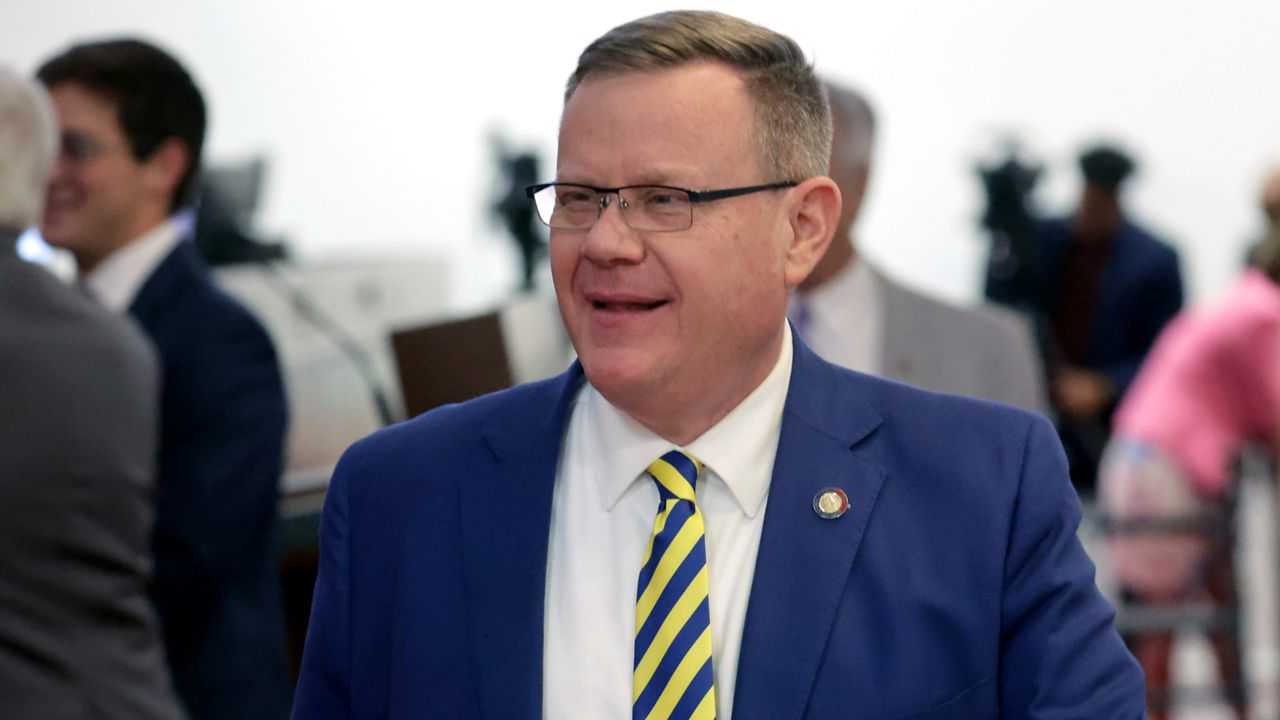RALEIGH, N.C. (AP) — Legalized sports gambling, starting next year in North Carolina, now seems a better bet as the state House's top leader said Thursday that he expected his chamber would accept alterations to its own proposal made by the Senate.
House Speaker Tim Moore's comment was a turnabout for him from Wednesday, as the Senate initially approved its version of the measure to authorize and regulate betting, and to tax proceeds. The Senate voted for it again Thursday by a strong bipartisan vote of 37-11.
Moore said Thursday that he anticipated the House would accept the Senate changes in two recorded votes next week. Should these votes be successful for bill supporters, the final measure would go to Democratic Gov. Roy Cooper for his anticipated signature. Cooper has expressed support for legal sports wagering.
Moore had told reporters Wednesday that the House would likely formally reject the Senate’s option. Moore said it was part of a goal of negotiating a compromise with Senate leaders that he hoped would also permit non-tribal casinos in the state and legalize video gambling machines.
But a chief sponsor of the House proposal, Rep. Jason Saine of Lincoln County, had said Wednesday that he would recommend to his colleague the Senate’s version. And Senate leader Phil Berger said he thought it best to finalize the sports gambling measure — which had support from House bill sponsors — before considering other gambling ideas.
On Thursday, Moore attributed his updated parliamentary path on the bill to “me not reading the notes properly on” the legislation, rather than changing his position.
A bipartisan coalition in the House scuttled a sports gambling bill last year. While the chamber voted for its current proposal in March as support for the idea solidified, the margin remained relatively narrow.
The Senate's version includes legalizing wagers on horse racing and allowing anyone over 21 to bet on sports using cash at sports venues that would offer gambling, and not just through registered accounts online. And while betting could begin next January, the Senate proposal could let regulators delay the opening until June 2024.
Legal sports gambling in North Carolina is available now at the state's three casinos, which are operated by two American Indian tribes.
Berger and Moore, both Republicans, said this week that discussions were still happening about whether to seek legislation authorizing nontribal casinos in rural or economically disadvantaged areas as jobs and revenue generators.
The idea has gained traction as casinos have opened in Virginia near the North Carolina border. They include a temporary casino that opened barely two weeks ago in Danville, Virginia, roughly 25 miles from where Berger lives in Rockingham County.
“Because the conversations are taking place, we’re a lot closer than we’ve ever been before,” Berger said, but “there are still some fairly significant hurdles” to create legislation in the final weeks of the General Assembly's chief work session this year.
Virginia lawmakers in 2020 approved legislation for five casinos to be built around the state if the projects first cleared a voter referendum. Based on that law, casinos have opened in Bristol and Portsmouth in addition to Danville. And a fourth is moving forward slowly in Norfolk.
Offering casinos on the North Carolina side of the border could be a defensive measure against losing money to Virginia while gaining revenue from visitors from surrounding states.
Moore lives in Cleveland County, where the Catawba Indian Nation opened a casino in 2021. He said authorizing the creation of “entertainment districts” that offer casinos, restaurants and entertainment could be a game-changer for some regions.
A study by a gambling research group for a North Carolina nonprofit political education organization released this year estimated commercial casinos built in Nash, Anson and Rockingham counties could generate almost $1.7 billion in gross wagering revenue annually and hundreds of millions in taxes.
It's possible that legislators who grudgingly agreed to approve sports wagering may say no to additional gambling this year. But while legislators debated for years the morality and economics of casinos, “that horse is kind of out of the barn” since tribal casinos opened, Moore said.
Moore said he is also interested in combining casino-expansion legislation with language regulating and taxing video poker machines, which are currently illegal under state law. A separate House measure heard in a committee last week would direct the Lottery Commission to regulate that industry.



